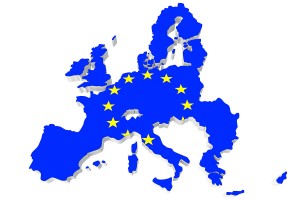Apple Inc. (NASDAQ:AAPL) today ran afoul of consumer protection laws in Belgium, though the legal code it violated applies to all of the European Union (EU). The law which was violated is one designed to ensure quality products are sold to European consumers, and declares that all electronics products sold must have a minimum two-year warranty included in their purchase price. Apple’s standard warranty is just one year, twelve months short of being in compliance, and the Brussels judge is contemplating measures to take against the tech giant, including possible blocks of Apple’s websites, according to Dutch Federal Public Service spokesperson Chantal de Pauw.
Apple’s warranty policy is essentially in direct violation of EU consumer protection laws, something which even minimal research would have revealed to its management. These laws, as noted, call for all electronics products sold in the EU to include a free 2-year warranty. Apple offers one year and the next year only as paid coverage with AppleCare. Charging for a year of warranty that is legally meant to be free is an obvious violation which could only leave the Cupertino, California firm vulnerable to justified consumer complaints across a continent.
 Though many criticisms of Apple Inc. (AAPL) are overblown, this appears to be a case where the firm’s hubris puts it firmly in the wrong. Relying on market power to bully its own version of consumer terms into place in a powerful and self-confident trading bloc is a major strategic error which may end up costing the electronics company dearly. Apple Inc. has already lost a prominent case in Italy over the same issue. Consumer protection groups across the 27 member union are filing similar lawsuits, and, having a clear-cut case against the company, are quite likely to win.
Though many criticisms of Apple Inc. (AAPL) are overblown, this appears to be a case where the firm’s hubris puts it firmly in the wrong. Relying on market power to bully its own version of consumer terms into place in a powerful and self-confident trading bloc is a major strategic error which may end up costing the electronics company dearly. Apple Inc. has already lost a prominent case in Italy over the same issue. Consumer protection groups across the 27 member union are filing similar lawsuits, and, having a clear-cut case against the company, are quite likely to win.
The Brussels judge initially contemplated ordering all Belgian ISPs to block Apple’s websites across the board. Such a move would likely cost the American firm considerable cash every day that it remained in effect, since no purchases of Apple products would be possible in Belgium until the block was lifted. He reconsidered this move temporarily, however, due to not wanting to deny people access to their iTunes accounts and other Apple services.
Still, the threat of punitive action is hanging over Apple Inc.’s (AAPL) European operations like the sword of Damocles in ancient Greek legend, suspended by a single hair. The firm will continue to experience mounting legal problems in the EU until it brings its policies in line with local law, a move which would both alleviate expensive pressure from litigation, and improve its reputation in a group of mature democracies which do not respond well to bullying.



